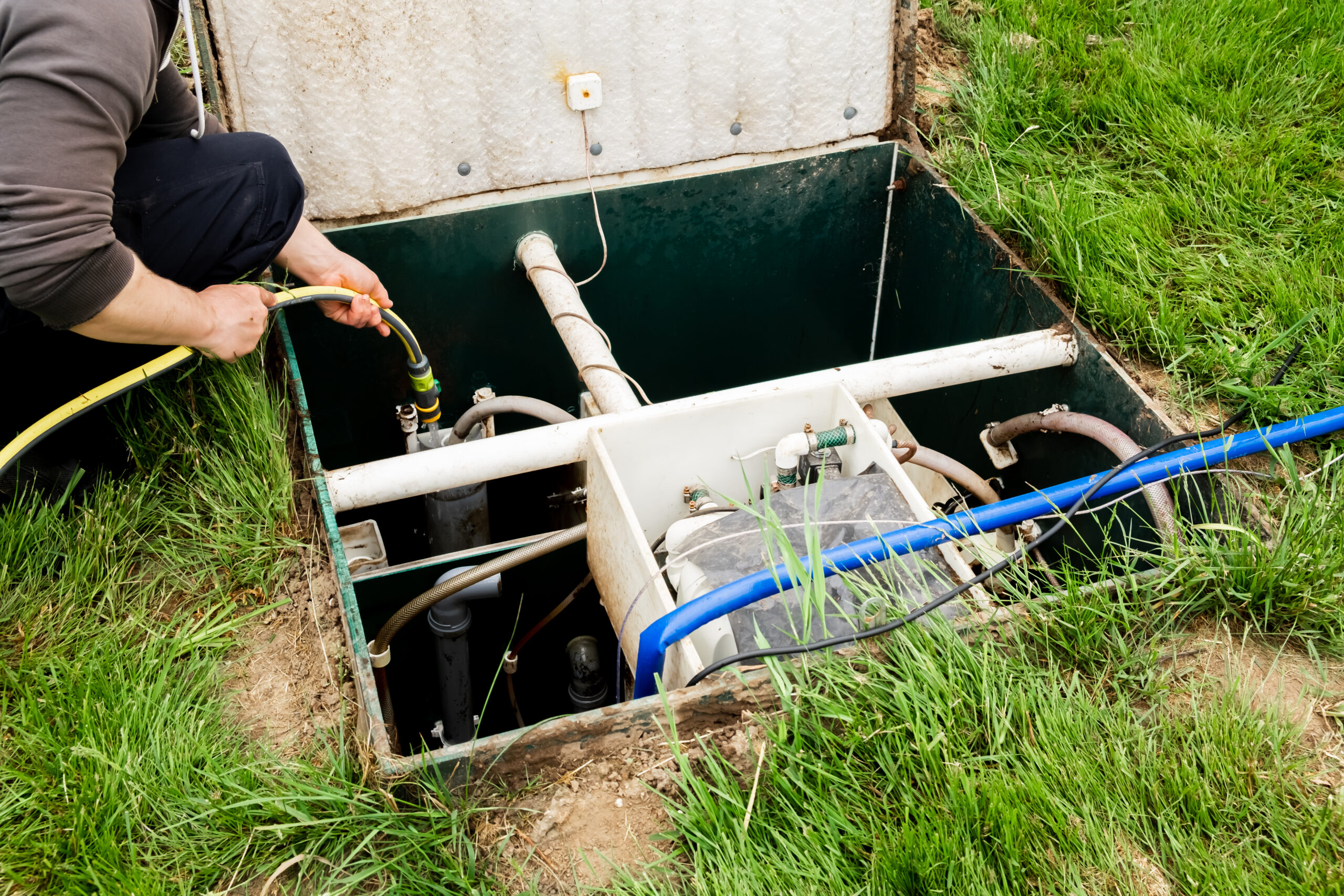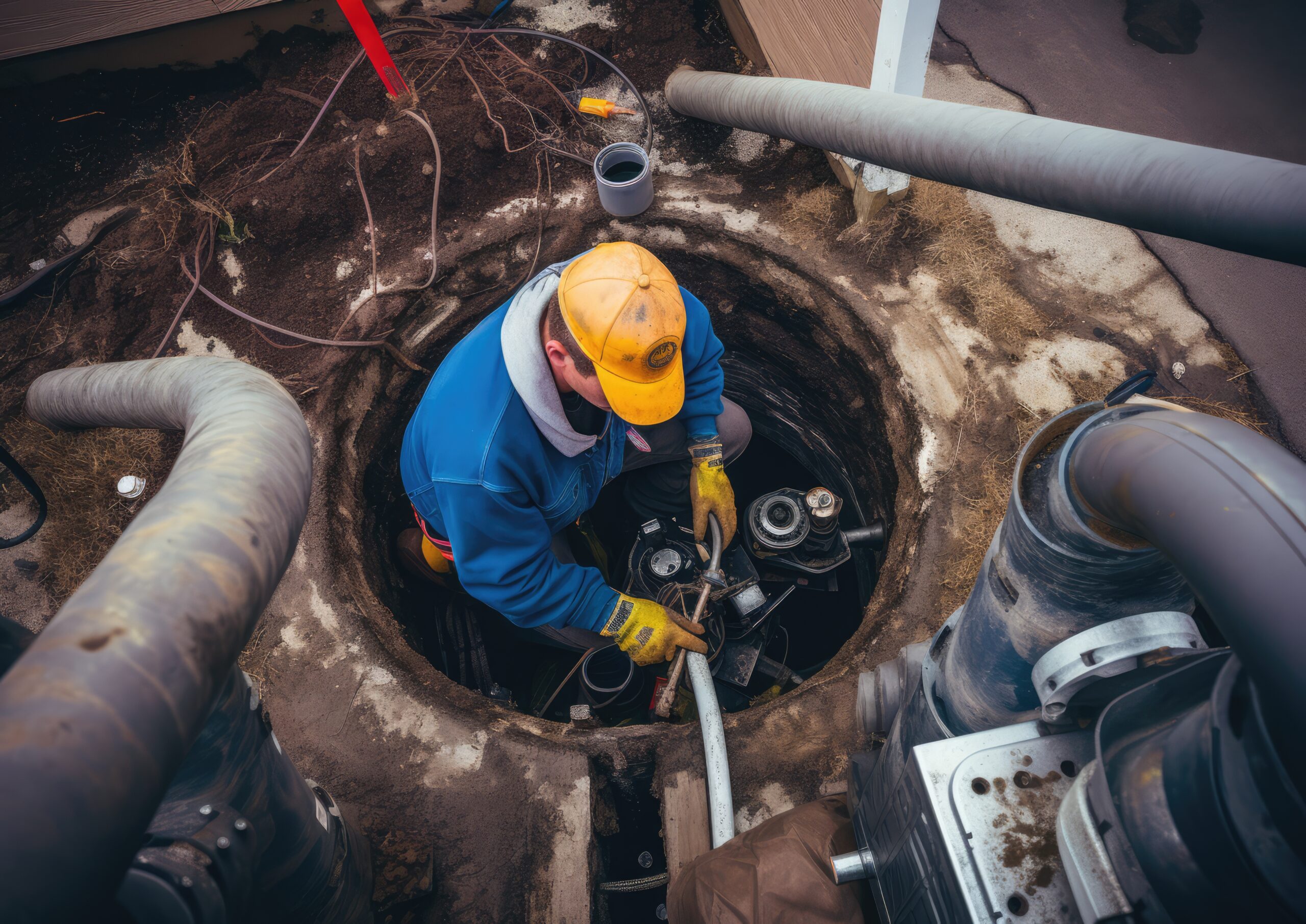Septic System Installation
Gravity, LPP, Sand Mound and Peat Moss Septic System
Home » Installation
Peat Moss Septic System
A peat moss septic system is an advanced alternative to a conventional septic system, featuring a dedicated treatment phase that enhances wastewater purification. During both residential septic system installation and commercial septic system installation, water from your property first enters a standard tank where solids settle. The resulting clarified effluent then moves by gravity or pump to a peat filter septic system, where it passes through 2–3 feet of peat filtration. This peat acts like a sponge, naturally absorbing and treating wastewater before it reaches the final disposal soil, producing purified wastewater with extensive purification.
In Delaware, where environmental sustainability and local ecosystem health are top priorities, many property owners choose Delaware peat moss systems for their enhanced efficiency and eco-friendly design. Partnering with experienced septic installers in Delaware ensures your system is installed correctly and in compliance with local regulations.
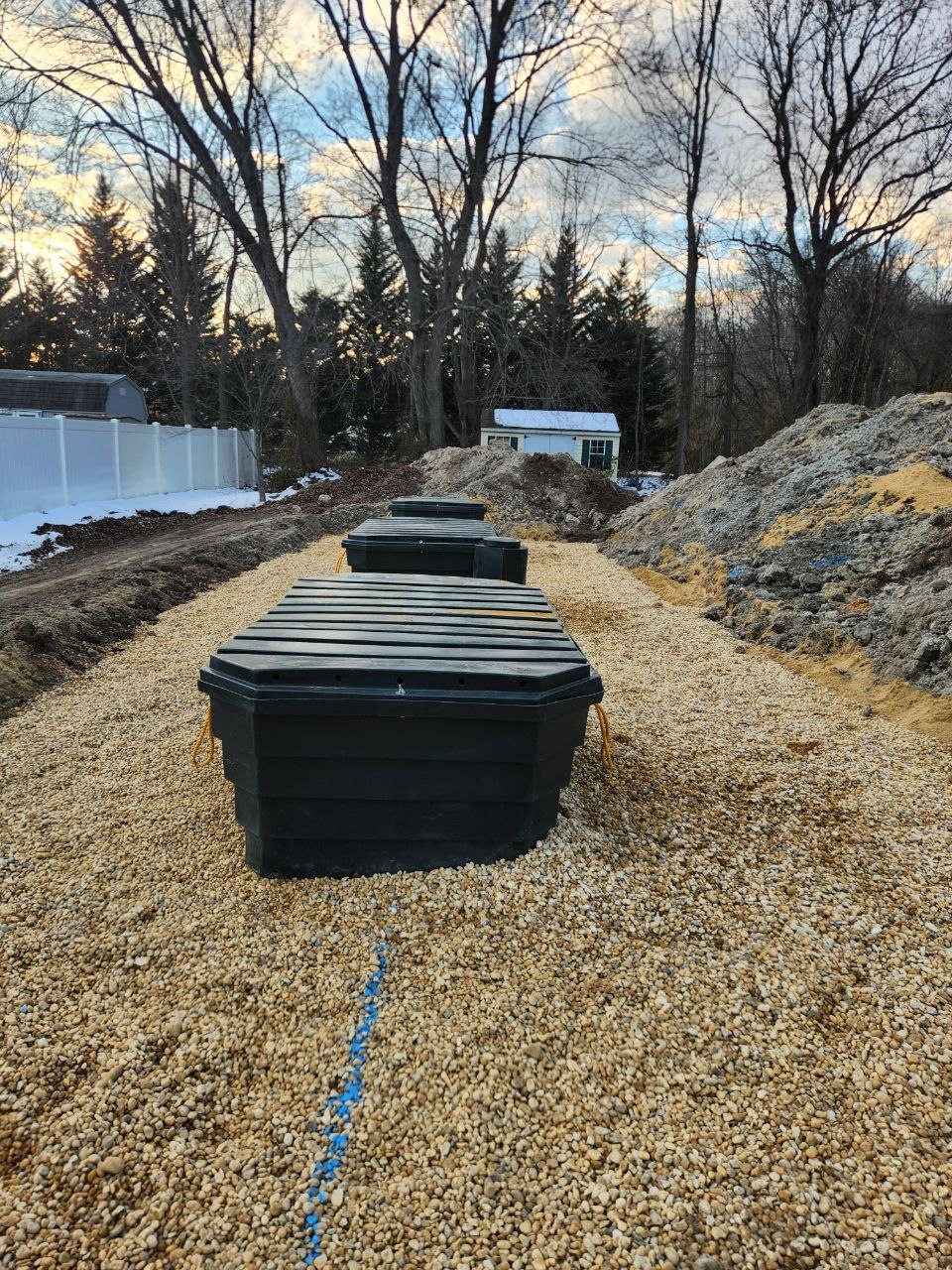
Gravity Septic System
A gravity septic system is a simple, cost-effective solution for wastewater treatment, relying on natural gravity to move wastewater from your home to the gravity septic tank and into the drain field. The tank separates solids, oils, and liquids, allowing the effluent to flow into the soil for safe filtration.
With proper site assessment and design, a gravity-fed septic system offers a durable, low-maintenance option for sustainable wastewater management. Ideal for properties with suitable soil and slope, it’s a reliable choice for homeowners seeking efficiency and longevity.
When considering a gravity septic system installation, it’s essential to understand the process known as ‘gravity flow.’ In this system, as wastewater enters the septic tank it displaces an equal amount of water. This displaced water then flows to the drain field through a series of pipes, eliminating the need for a mechanical pump. It’s crucial to select a high-quality tank as the tank’s ability to remove two-thirds or more of the contaminants from wastewater is vital. Ensuring the septic tank is appropriately sized, watertight, and structurally sound is essential to prevent pollution in your yard and groundwater contamination. A compromised tank can lead to groundwater infiltration, which might overload the drain field and reduce its operational lifespan, emphasizing the importance of professional septic system installation services.
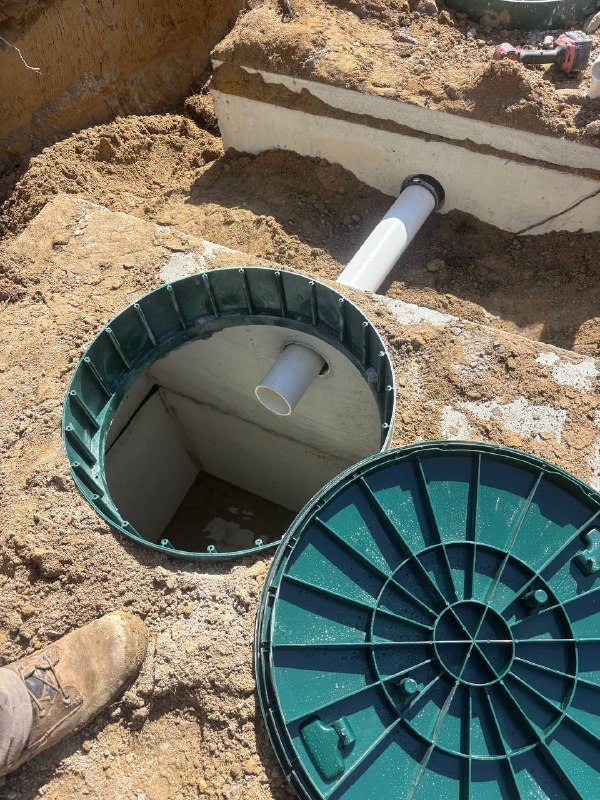
LPP Septic System
LPP, or Low-Pressure Pipe systems, are an innovative choice for residential septic system installation and commercial septic tank installation where high water tables might pose challenges. These systems, known for their efficiency in septic system installation, utilize a network of small, perforated pipes set in narrow trenches. This design is perfect for areas with restricted space or difficult soil conditions, ensuring effective shallow soil absorption. Key components of an LPP system include a septic tank, a submersible effluent pump in a dosing chamber complete with a high-water alarm and level controls, and perforated distribution laterals in the drain field. These features make LPP systems a preferred choice among septic installers in Delaware, significantly reducing the risk of soil clogging by preventing continuous saturation.
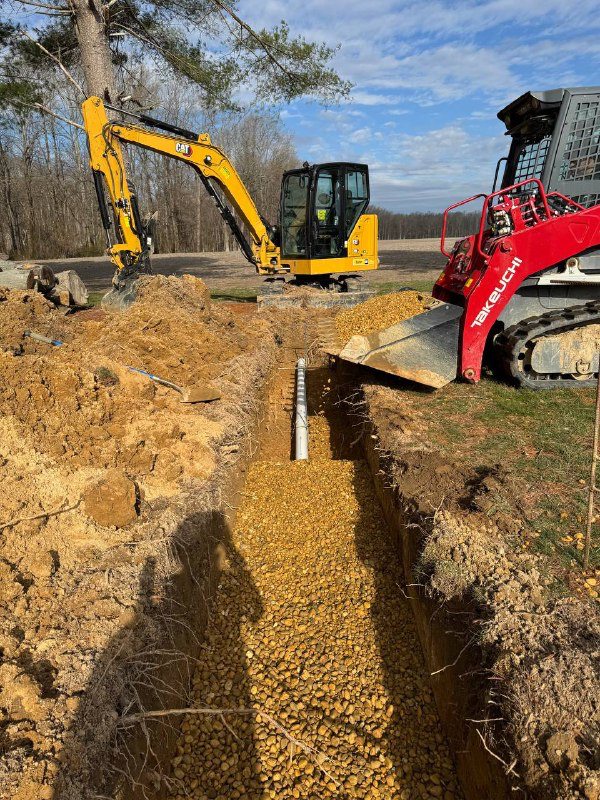
Sand Mound Septic System
In areas with shallow soil depths, high groundwater levels, or shallow bedrock, sand mound systems present a viable option for residential septic system installation,and commercial septic system installation including for those seeking septic installers in Delaware. This type of system involves a constructed sand mound that houses a drain field trench. The effluent, or wastewater, exits the septic tank and flows into a pump chamber. From there, it is methodically pumped to the mound in controlled doses. As the effluent is released into the trench and percolates through the sand, it undergoes treatment before dispersing into the local soil. While sand mound systems are a suitable septic tank installation solution for particular environmental conditions, they do necessitate ample space and consistent periodic maintenance to function effectively.
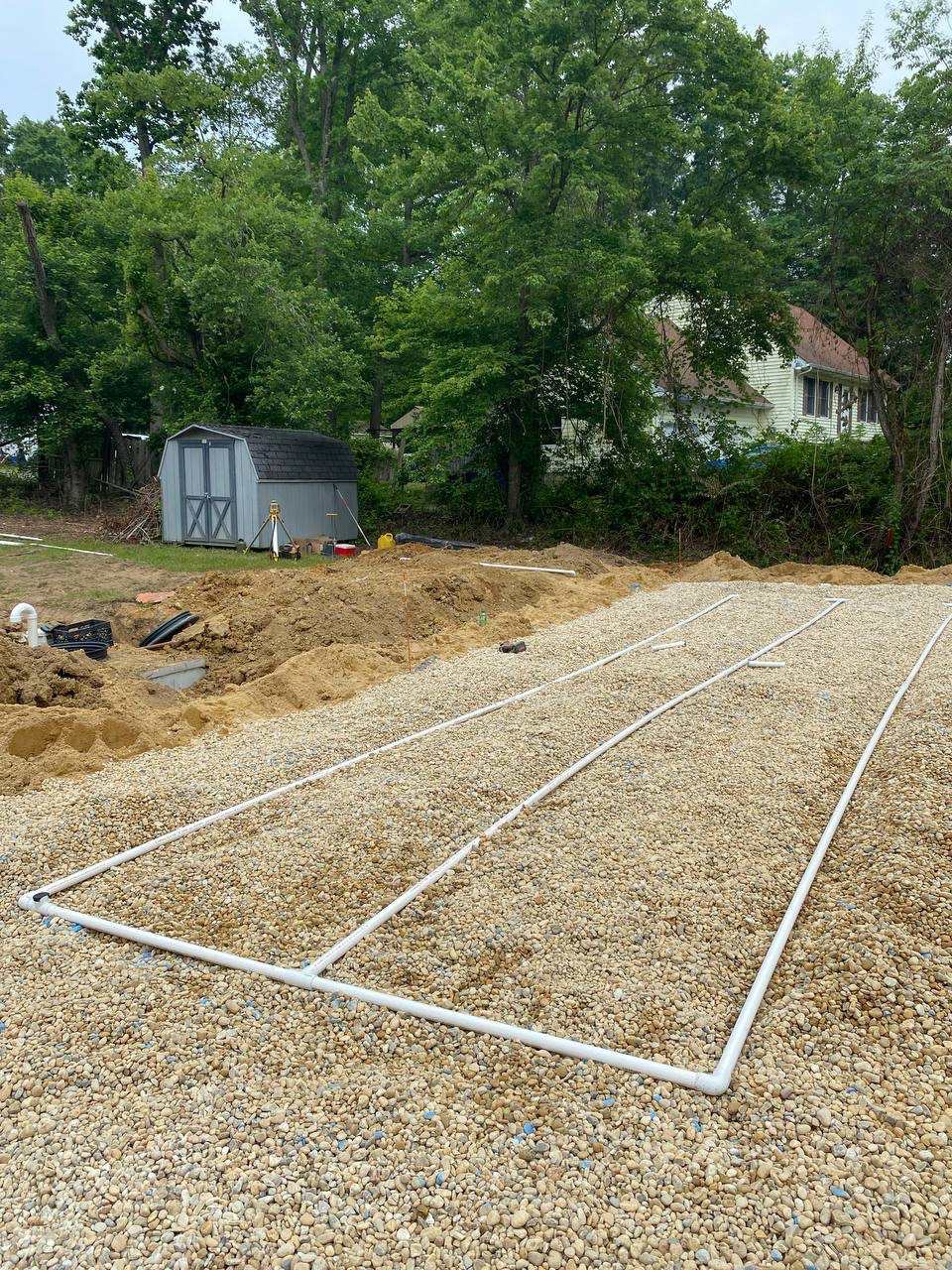
OUR SEPTIC INSTALLATION SERVICE INCLUDE
Drain Field Installation
We build drain fields professionally, carefully planning and putting in place leach field systems that work well with your property’s soil and size. Our expert team, who specializes in septic tank and leach field installation, ensures that all local environmental rules are followed, which guarantees that your septic system will work well and last a long time.
Grease Trap Installation
We build drain fields professionally, carefully planning and putting in place leach field systems that work well with your property’s soil and size. Our expert team makes sure that all local environmental rules are followed, which guarantees that your septic system will work well and last a long time.
Percolation Test
We provide Perc Test (Percolation Test) services to evaluate the absorption rate of soil, ensuring the suitability for septic system installation. This essential assessment helps in designing an efficient septic system that complies with local environmental regulations and prevents future system failures.
Effluent Filter Installation
We provide effluent filter installation to enhance the functionality of septic systems by preventing solids from entering the drain field, thus safeguarding the system’s efficiency and extending its lifespan. This service is essential for maintaining the purity of the effluent and ensuring the long-term reliability of your septic system.
Baffle Replacement
We are experts at replacing baffles in septic systems and making sure that the inlet and exit baffles are well taken care of so that solids don’t leak out of the tank and clog the drain field. Our team is skilled at inspecting and changing baffles that are broken or worn, which makes your septic system work better and last longer.
Riser Installation
Our riser installation services make it easier and safer to get to septic tanks for upkeep and inspections. By putting in risers, we make sure that the entry points to the tanks are at ground level. This makes future maintenance a lot easier.
Expert Septic Drain Field Installation Services in Delaware
At the heart of a well-functioning septic system is a properly designed and installed drain field. Our team specializes in drain field installation, ensuring that wastewater is safely and efficiently dispersed into the soil. With years of experience in septic drain field installation,our clientele can vouch that we provide the best professional septic installation services in Delaware, prioritizing correct site evaluation, soil testing, and system design. Whether you’re building a new home or upgrading your existing septic system, our septic drain field installation services ensure optimal performance, preventing future issues and extending the lifespan of your septic system. Trust us for all your drain field installation and septic tank installation needs, to keep your system running smoothly for years to come.
Schedule this service
Want to know more about this service? Contact our experts!
FAQs
How much does it cost to install a septic system?
The cost to install a septic system can vary significantly based on the type of system, property size, soil type, and local regulatory requirements, making it essential to consult with professionals for a precise estimate.
How to install a septic drain field?
To install a septic drain field, first, obtain necessary permits and conduct soil tests, then excavate the area, lay the perforated pipes in gravel-filled trenches, ensuring proper slope for drainage.
Can a homeowner install a septic system?
Yes, a homeowner can install a septic system, but it requires adherence to local health department regulations and possibly obtaining permits and inspections.
What should I do to prepare for septic system installation?
Preparation steps include clearing the installation area of any obstacles, marking utility lines, and ensuring easy access for heavy equipment. It’s also important to communicate with your installer about any specific site concerns.
What are the common mistakes to avoid during septic system installation?
Common mistakes include improper sizing of the system, poor site selection, inadequate soil testing, and failure to follow local regulations. Ensuring proper design and professional installation can help avoid these issues.
They went above and beyond to make sure we understood evrything about installation and how to make our system lasted as long as possible.They(James) explained construction every step of the way,we came from the city and had no idea about wat a septic system was,but James was there to answer all of our questions,i highly recommend this company
james bowers
Gotham, USA
They went above and beyond to make sure we understood evrything about installation and how to make our system lasted as long as possible.They(James) explained construction every step of the way,we came from the city and had no idea about wat a septic system was,but James was there to answer all of our questions,i highly recommend this company
James Bowers
Contact Us
Whether you need a routine inspection, emergency repairs, or a brand-new installation, our team is here to ensure your septic system operates flawlessly. Reach out to us through the form below, give us a call, or drop us an email.



